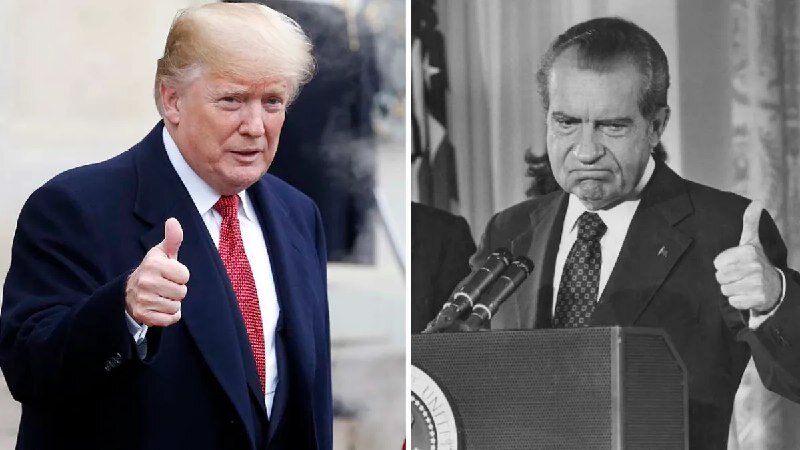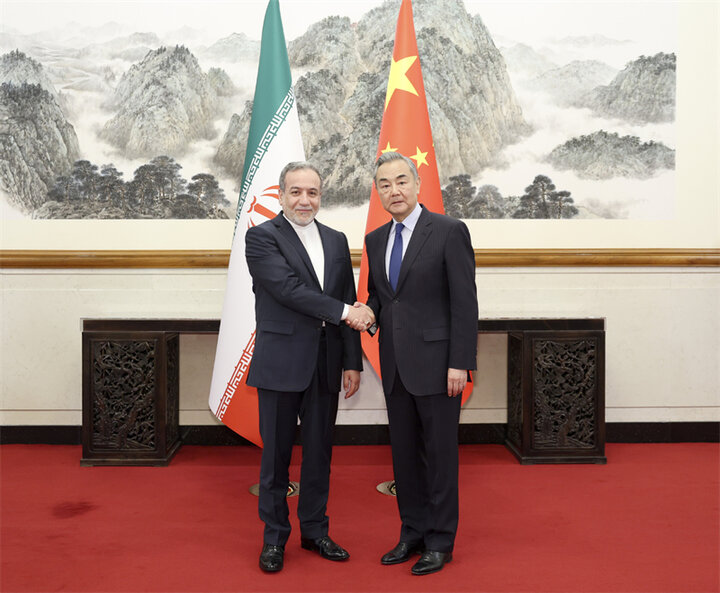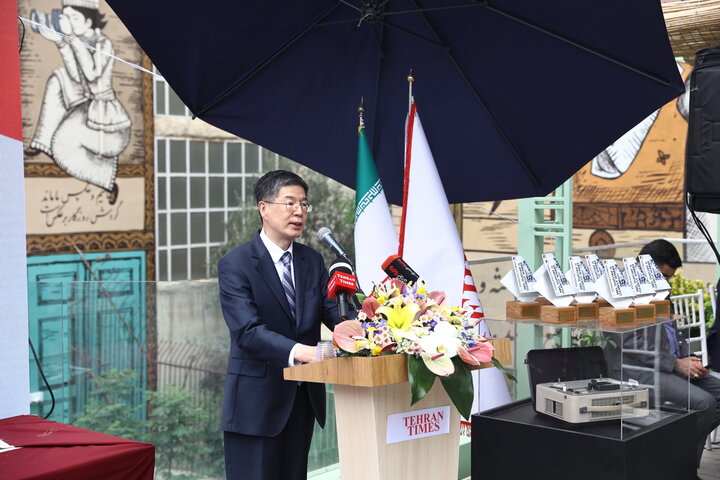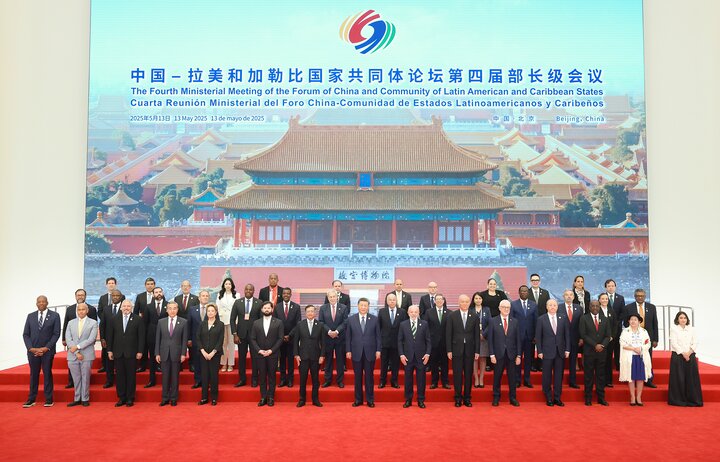From Nixon to now: Taiwan arms sales contradict US commitments to China

BEIJING — China has issued a stark warning to the United States, condemning reported American plans for a massive surge in weapons sales to Taiwan as a crossing of its "first red line" that threatens to ignite fresh tensions in the Taiwan Strait.
According to a Reuters report, the US is preparing to accelerate arms sales to the island as part of an effort to deter China.
Two unnamed US officials told the news agency that upcoming arms sales approvals for Taiwan may exceed the levels seen during Donald Trump’s first term, with one official stating that notifications could "easily exceed" previous amounts.
Data from Reuters shows that the first Trump administration approved approximately $18.3 billion in weapons sales to Taiwan, while the Joe Biden administration authorized around $8.4 billion.
Foreign Ministry Spokesperson Lin Jian reiterated China’s stance at a press briefing on Friday.
“The Taiwan question is at the core of China’s core interests, and the first red line that cannot be crossed in China-U.S. relations. China firmly opposes the U.S.’s arms sales to China’s Taiwan region, urges the U.S. to abide by the one-China principle and the three China-U.S. joint communiqués, especially the August 17 Communiqué of 1982, stop selling arms to Taiwan and stop creating new factors that could lead to tensions in the Taiwan Strait. China is firmly resolved in defending its national sovereignty and territorial integrity,” Lin said.
The one-China principle is the cornerstone of China's foreign policy regarding Taiwan. It states that there is only one China in the world, Taiwan is an inalienable part of China, and the government of the People's Republic of China (PRC) is the sole legal government representing all of China. This principle is widely recognized by the international community, including the United States.
Three China-US joint communiqués
These are key diplomatic agreements between China and the United States that outline the framework of bilateral relations, particularly on the Taiwan issue.
The 1972 Shanghai Communiqué, signed during President Richard Nixon’s visit, was a breakthrough in US-China relations. China stressed that Taiwan was the primary obstacle to normalization, reiterating its one-China principle: the PRC is China’s sole legitimate government, Taiwan is an inalienable part of China, and reunification is a domestic matter. The US acknowledged that all Chinese on both sides of the Strait agree there is only one China, including Taiwan. It also supported a peaceful resolution led by the Chinese themselves and committed to withdrawing US forces from Taiwan. Both nations vowed not to seek regional hegemony.
The 1978 Joint Communiqué, established during President Jimmy Carter’s administration, normalized diplomatic relations between the US and China. The US formally recognized the one-China principle, acknowledging that Taiwan is part of China and affirming the PRC as the sole legitimate government. It agreed to maintain only unofficial ties (cultural and commercial) with Taiwan. Both sides reaffirmed the principles of the 1972 Shanghai Communiqué. As part of this shift, the US terminated its mutual defense treaty with Taiwan.
The 1982 Joint Communiqué, signed under President Ronald Reagan, aimed to ease PRC concerns over US arms sales to Taiwan under the Taiwan Relations Act (TRA). Both sides reaffirmed the principles of the 1972 and 1978 communiqués. The US pledged not to pursue long-term arms sales to Taiwan, cap their quality and quantity at post-1979 levels, and gradually reduce sales pending a peaceful resolution.
Iran stands firm on one-China policy

Iran is among the countries that adhere to the one-China principle. In a meeting with his Chinese counterpart Wang Yi in Beijing in April, Iranian Foreign Minister Abbas Araghchi reiterated that Iran attaches great importance to developing its relations with China, abides by the one-China principle, and supports China in safeguarding its core interests.
In an op-ed published by IRNA’s English News Desk on Wednesday, Cong Peiwu, the Chinese Ambassador to Iran, commended Iran for its unwavering and principled support of the one-China policy.
“As comprehensive strategic partners, China and Iran have always firmly supported each other on issues of core interests. The one-China principle is not only enshrined in the China-Iran Joint Communiqué on the Establishment of Diplomatic Relations but also repeatedly reaffirmed in joint statements and other documents. China highly commends Iran’s consistent and just stance in upholding the one-China principle. We stand ready to work with Iran to safeguard the one-China principle and other basic norms of international relations, oppose hegemonism and interference, and contribute to building a fairer and more reasonable international order,” he said.
Taiwan an inalienable part of China’s territory

Cong also examined the historical context of the Taiwan question by highlighting three key milestones: He said Taiwan has been an inalienable part of China's territory since ancient times. The ambassador noted that on October 25, 1945, China resumed sovereignty over Taiwan from Japan as mandated by the Cairo Declaration and Potsdam Proclamation. He pointed out that on October 1, 1949, the People's Republic of China became the sole legal government representing all of China, including Taiwan, with no change to China's sovereignty or territorial integrity. The ambassador highlighted that on October 25, 1971, UN Resolution 2758 recognized the PRC as China's only legitimate representative, confirming there is only one China encompassing Taiwan.
He added, “The core of the one-China principle is clear: there is but one China in the world, and Taiwan is an inalienable part of China’s territory, and the PRC government is the sole legal government representing the whole of China. This has become a universal consensus of the international community and a fundamental norm in international relations.”
Cong said, “Based on this principle, 183 countries have established diplomatic relations with China, and most nations and international organizations have repeatedly voiced firm support for China’s just cause of safeguarding national unity and territorial integrity. This fully demonstrates that upholding the one-China principle is an international imperative, a shared aspiration, and an irresistible trend. The global consensus in support of the one-China principle is unchallengeable and unshakable.”
China builds, America bombs

For now, Washington’s failure to uphold the one-China principle has brought into sharp relief the contrasting diplomatic approaches of the two nations.
China adheres to a doctrine of peaceful growth and a defense-oriented military strategy, deploying its armed forces exclusively to protect its sovereignty, territorial integrity, and developmental interests while supporting international peace efforts. Through its involvement in UN peacekeeping operations and humanitarian assistance, such as the critical role Chinese peacekeepers have played in Africa’s post-conflict recovery, Beijing has demonstrated its commitment to fostering stability worldwide.
In contrast, the United States pursues unchallenged military supremacy, leveraging its armed forces as instruments of geopolitical control. Maintaining the world’s largest defense budget and an extensive network of overseas bases, it has repeatedly engaged in military interventions—from Korea and Vietnam to Iraq and Afghanistan—leaving behind devastated societies, displaced populations, and prolonged humanitarian disasters. These campaigns, often justified as peacekeeping endeavors, have primarily served to advance strategic dominance, secure economic interests, and reinforce global hegemony rather than deliver sustainable peace.
Leave a Comment